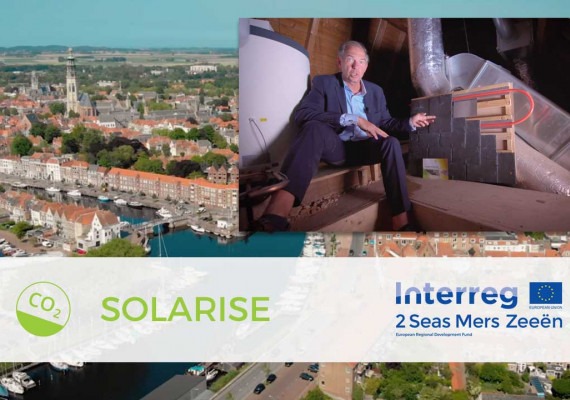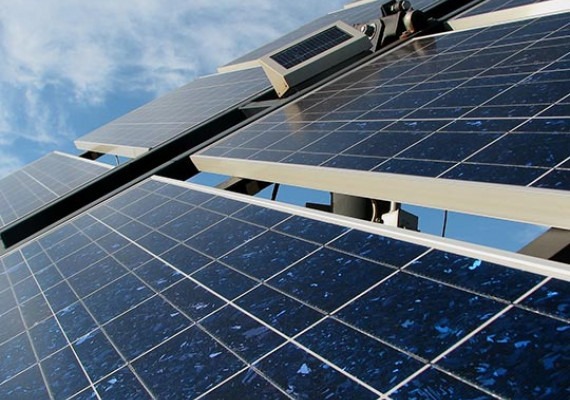SOLARISE
Date de début
01/03/2018Date de fin
31/03/2023Project budget
4 291 512 €ERDF amount
2 574 907 €ERDF rate
60%À propos
Common challenge
Solar electricity generation has increased rapidly in recent years. In 2014 it accounted for 11% of EU renewable electricity (Eurostat), becoming the third largest contributor to electricity production from Renewable Energy (RE) sources in Europe. Solar is the most abundant of all RE sources. Yet it is perceived as prohibitively expensive, taking years before investment is returned, and problematic, as the electricity grid infrastructure struggles to cope with the variability of solar energy. There is little deployment of solutions like battery storage with solar photovoltaic that would offer grid balancing to enable solar to scale up.
Accordingly, solar remains a small part of Europe’s energy system and does not achieve its potential in the 2 Seas area. With high consumer energy prices, there is a common challenge to reduce costs and improve the applicability and efficiency of the technology, resulting in accelerated uptake and wider deployment of solar energy across the Programme area.
Overall objective
Main outputs
Cross border approach
Main Achievements
During the implementation of the SOLARISE Project, various outstanding achievements have been reached, including:
The Middelburg Solar Roadmap produced in the framework of the SOLARISE Project has been further elaborated to feed into the Zeeland Regional Energy Strategy and the new Environmental Vision. Furthermore, thanks to the Solarise project, the city has invested in additional innovative solar energy solutions such as the Q-roof system. The project also helped to support municipalities in Flanders to reach their energy transition targets especially 20% final energy consumption from renewable sources and renewable energy production by 2020. Additionally, thanks to the project Ville de Fourmies was also able to install a photovoltaic plant on a curved roof without any initial technical notice. It was therefore able to mobilise the expertise of the technical controller to solve the installation of panels on this type of roof, which will set a precedent for other French projects of this nature. Nect, the BHCC solar installations provided renewable energy to people living in council-owned housing. The residents are often on low, fixed incomes, or vulnerable to ill health and disability. Through the pilots, BHCC was able to offer residents lower energy bills, even in the current period of rapidly rising electricity prices. This is particularly important in improving living standards, while also giving some stability to residents’ finances, and easing anxiety and mental health problems arising from the increased cost of living. Finally, Fourmies and UPJV identified a new project within the Interreg North Sea Programme which already succeeded its first phase application with the opportunity to develop energy community and energy management system together with Fourmies in France and other partners in the Netherlands, Germany, Belgium.
Testimonial
“The SOLARISE project, co-financed by the Interreg 2 Seas Programme, aimed to accelerate the adoption of solar energy in the northern territories. Certainly, there exists significant potential for harnessing solar energy when considering the utilization of both collective and individual roofs, along with the facades of public or private structures. There is also enormous potential for solar farms which are developing a lot, either for the production and resale of electricity, or for specific industrial applications. Certainly, on the economic level, solar energy contributes to the development of a circular economy and the emergence of a citizen energy community. On an environmental level, solar energy is by definition ecological, as it is a renewable energy and with no CO2 emissions. The results of this project are very promising and enriching, because through a consortium of twelve partners who have complementary profiles, we have been able to touch on the different aspects of solar energy, not only technical but also social and economic”.
Prof. Ahmed RACHID
Professor of Control Engineering, University of Picardie Jules Verne


